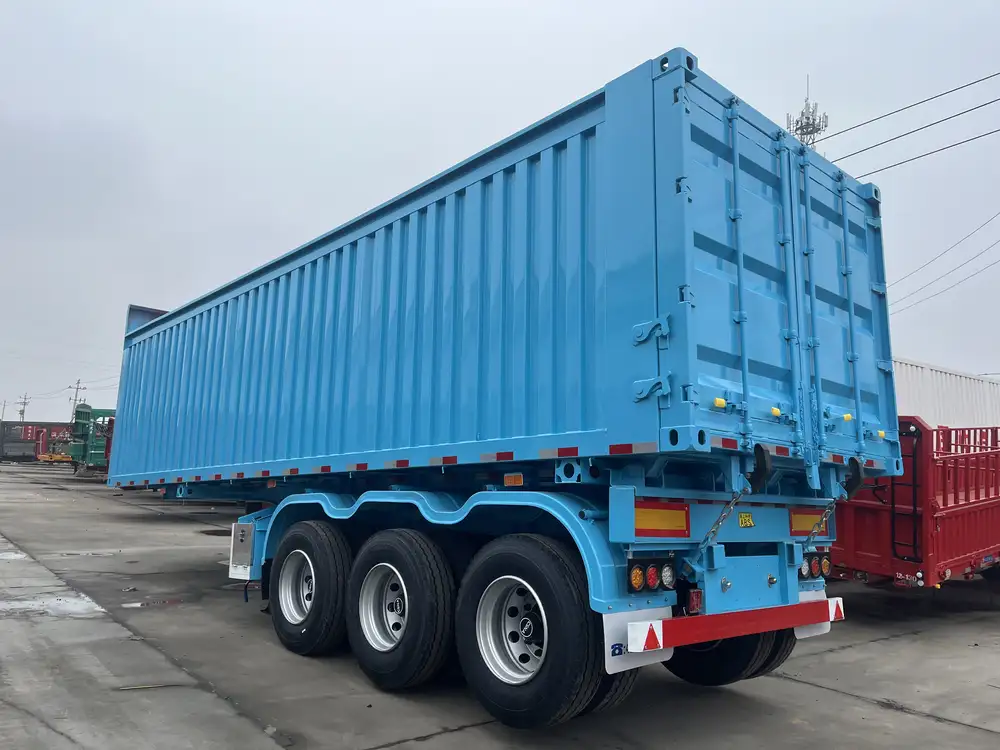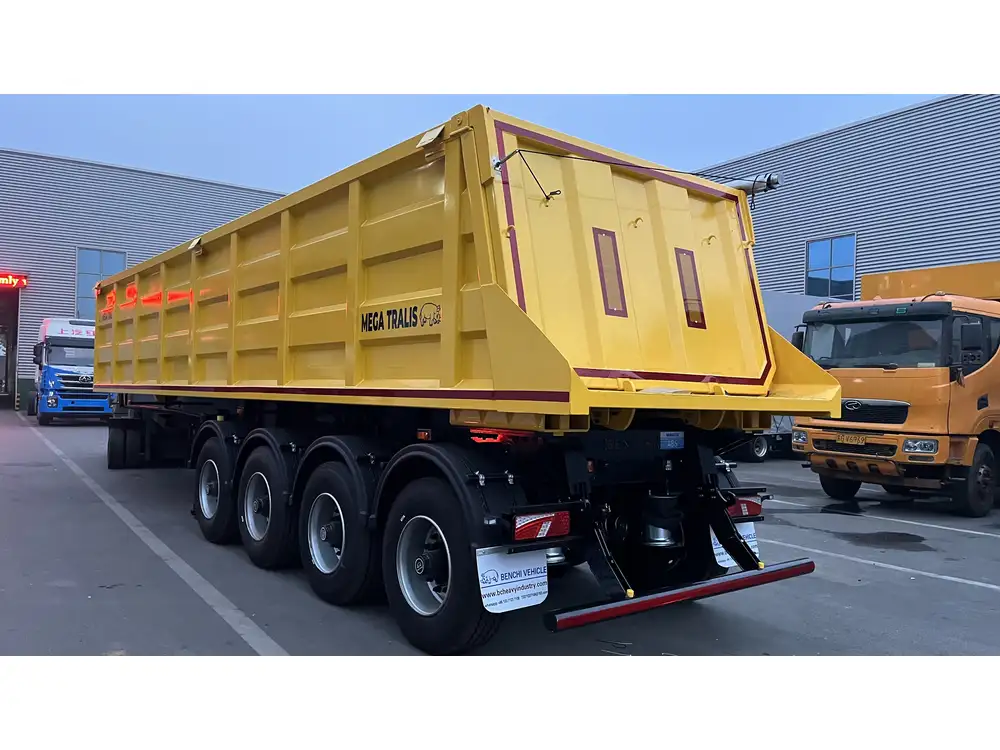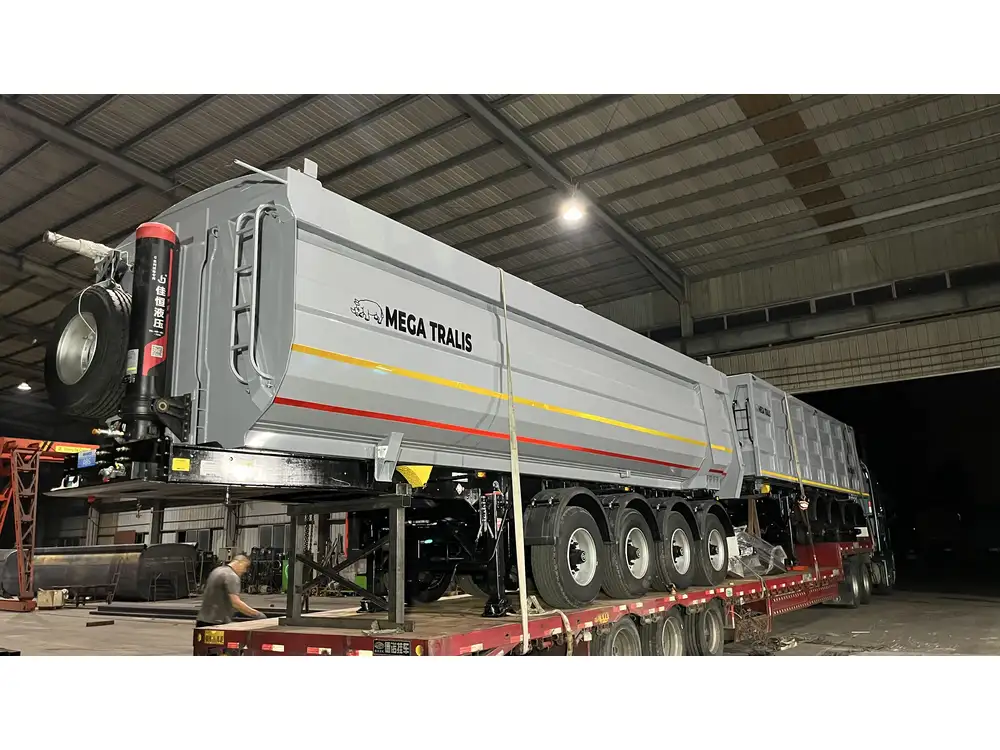When it comes to investing in transportation for goods, understanding the costs associated with purchasing a semi-trailer is paramount for business owners. This guide provides an in-depth exploration of the various factors influencing semi-trailer prices, from the type of trailer to financing options, ensuring you have a well-rounded view to make informed decisions.
Factors Influencing Semi-Trailer Costs
1. Type of Semi-Trailer
Semi-trailers come in various types, each designed for specific needs. Understanding the differences can clarify price variations.
| Semi-Trailer Type | Average Cost Range | Description |
|---|---|---|
| Flatbed Trailer | $20,000 – $45,000 | Used for transporting heavy loads and freight that requires loading from the top or sides. |
| Refrigerated Trailer | $25,000 – $75,000 | Ideal for transporting perishable goods; equipped with temperature control. |
| Tanker Trailer | $35,000 – $80,000 | Designed to carry liquids, gases, or petroleum. Prices increase based on size and materials. |
| Dry Van Trailer | $25,000 – $65,000 | A closed-box trailer optimized for dry freight transport. |
| Dump Trailer | $30,000 – $60,000 | Used for transporting and unloading loose materials. |
| Lowboy Trailer | $40,000 – $100,000 | Designed for transporting heavy and oversized loads, typically featuring a lower deck. |
These ranges can vary based on manufacturer, specifications, and structural materials.

2. New vs. Used Trailers
Purchasing a new semi-trailer guarantees the latest features and warranties but comes at a premium. The costs can be significantly higher compared to used options, which may offer better financial flexibility but come with risks related to maintenance and reliability.
- New Trailers: Average cost ranges from $20,000 to $100,000 or more, depending on specifications.
- Used Trailers: Prices can range from $10,000 to $70,000, with variations depending on age, mileage, and condition.
3. Specifications and Customizations
Trailers can be customized to meet specific business needs. Each customization, from different axle configurations to specialized features (like lift gates or additional storage compartments), affects the final price.
- Standard Specifications: Basic features often come with minimal cost increments.
- Custom Features: Extensive modifications can add thousands to the base price. For instance, adding a side door can cost between $1,000 and $3,000, while integration of advanced braking systems can escalate base prices by $5,000 or more.
4. Manufacturer and Brand
Brand reputation plays an important role in determining costs. Leading manufacturers with established quality and support networks often command higher prices than lesser-known brands.
| Manufacturer | Reputation | Typical Price Range |
|---|---|---|
| Wabash National | High | $30,000 – $80,000 |
| Great Dane Trailers | High | $25,000 – $90,000 |
| Utility Trailer | High | $35,000 – $100,000 |
| Trail King | Moderate | $20,000 – $75,000 |
| Diamond C Trailers | Moderate | $15,000 – $60,000 |

5. Market Conditions and Demand Trends
Market conditions are ever-evolving and can drastically influence semi-trailer prices. During times of economic growth, increased demand can inflate prices. Conversely, in a stagnant economy, prices may stabilize or decrease.
- Supply Chain Issues: Global materials shortages can raise manufacturing costs and subsequently the retail price of trailers.
- Seasonal Variations: Certain times of the year, especially around harvest or holiday seasons, can see spikes in demand for specific trailer types.
Additional Expenses and Considerations
1. Financing Options
Financing can facilitate the acquisition of a semi-trailer, particularly for those businesses that may not have the total upfront capital readily available. Options include:
- Leasing: Typically results in lower upfront costs, but the total expenditure over time can be higher. Leasing might range from $300 to $1,200 per month.
- Loans: Traditional loans typically require a down payment, with interest rates influencing the total cost. Expect rates ranging from 6% to 10%, depending on credit scores and lenders.

2. Registration and Licensing Fees
These costs can vary by state and usage type. New semi-trailers often incur higher registration fees due to state tax regulations. Expect costs to range from $100 to $1,200 annually depending on the state and vehicle type.
3. Insurance Costs
Insurance is crucial for protecting your investment. The cost of insuring a semi-trailer can vary widely based on coverage options and business operations. Business owners can expect to pay between $1,500 to $5,000 annually for comprehensive coverage.
4. Maintenance and Repair
Evaluating ongoing costs is essential for budgeting purposes. Regular maintenance ensures longevity and reliability, and average maintenance costs can echo around $1,000 to $4,000 each year, depending on usage frequency and type of trailer.

Where to Buy a Semi-Trailer
Exploring various avenues for purchasing a semi-trailer can yield significant savings and options for customization.
1. Dealerships
Purchasing from authorized dealerships often guarantees reliable service and quality assurance. Dealerships may also offer financing experiences tailored to the buyer’s needs.
2. Private Sellers
For those on a tighter budget, purchasing from private sellers might yield lower costs. However, it’s crucial to conduct due diligence regarding the condition and repair history of the trailer.

3. Auctions
Auctions can provide opportunities for significant savings, but caution is advised. It’s critical to inspect trailers prior to bidding and consider additional fees that could influence the final cost.
Conclusion: Making an Informed Decision
Understanding the complexities surrounding semi-trailer costs can empower business owners to make informed purchasing decisions. From knowing the implications of various trailer types and their associated costs to examining financing methods and ongoing expenses, every factor plays a crucial role in the decision-making process.
Final Thoughts
To effectively navigate the semi-trailer market, ensure you:
- Assess Your Needs: Determine which trailer type fits your business model.
- Research Thoroughly: Explore various manufacturers, reviews, and warranty options.
- Evaluate Total Costs: Beyond the purchase price, account for ongoing expenses to maintain a healthy business budget.
By carefully weighing each aspect, you can secure the right semi-trailer that meets your operational needs while remaining within budgetary limits.



